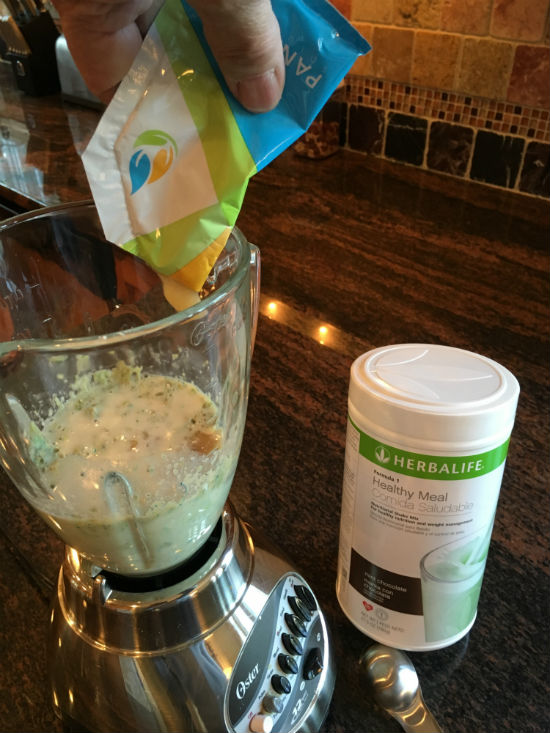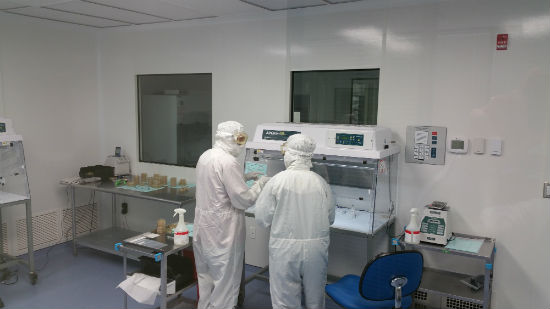
Panaceutics Ramping Up To Market Personalized Nutrition Products Via Royal DSM

Research Triangle Park-based Panaceutics is ramping up its financing and manufacturing capabilities to bring personalized nutrition products to market in collaboration with Dutch-based Royal DSM.
DSM will exclusively market and sell Panaceutics Nutrition personalized products in multiple markets across the Americas, Europe and Asia.
The company’s name derived from panacea, meaning “cure-all,” a word that evolved from the Greek panakeia, from panakēs ‘all-healing.’
As one of the only systems in the world that allows cost-effective and scalable manufacturing of individual formulations, Panaceutics uses patented technologies to combine digital data on daily habits, genomics and biomarkers. This then drives its on-demand robotic manufacturing platform to make an individual’s blended formula, delivered in a ready-to-consume, shelf-stable packaged product.
Nutritional solutions are delivered in convenient organic food purees or gel suspensions, therefore removing the need for individuals to take multiple supplements.

-- Panaceutics photos
Panaceutics, founded in late 2013, was bootstrapped by two Small Business Research Loans from the North Carolina Biotechnology Center in 2014 and 2016 totaling $325,000. The Biotech Center also supported the fledgling company with four $3,000 industrial internships.
DSM is a minority investor in Panaceutics through its venture investment arm, DSM Venturing. The companies will collaborate on several personalized health projects, including adapting Panaceutics’ exclusive technology to manufacture additional formats, such as personalized beverages and bars.
Although the partnership with DSM focuses on personalized nutrition, the Panaceutics technology is also a significant tool in personalized medicine therapies. The company is planning clinical studies into preventing and managing chronic medical conditions such as cardiovascular disease.
“As consumers become increasingly health-conscious, we believe personalized nutrition will continue to disrupt the nutrition and supplement market and grow into a multi-billion-dollar industry,” said Peter De-Meester, DSM vice president, global strategy and personalized nutrition, in announcing the collaboration.
Edison Hudson, CEO and founder of Panaceutics, added: “Our disruptive technology uses proprietary robotic technology, in combination with digital health platforms, to rapidly manufacture products to serve individuals’ needs and health conditions. This exciting venture with DSM will help us to reach our goal of serving large numbers of people with data-driven personalization.”

A wholly owned subsidiary of Panacea BioMatx Inc., Panaceutics expanded its footprint through the acquisition of two North Carolina nutrition- and pharmaceutical-focused companies: Next Generation Snacks Inc., a manufacturer of whole food products, and Triangle Compounding Pharmacy Inc., an FDA-registered and -inspected 503B outsourcing facility.
Co-founded by Hudson and Chief Scientific Officer L. Staton Noel, Panaceutics has 38 employees and expects to expand its headcount to 50 by the end of the year. The company reported more than $10 million in revenue in 2018. Currently, most of its reported revenue comes from the compounding pharmacy.
It also has a development contract with a Fortune 100 company.
Hudson told the Triangle Business Journal the company expects revenue to climb to $50 million in coming years.
Noel said the company’s big challenge right now is to scale up to meet the demand for personalized products. “DSM is bringing in some big partners and is asking us to scale up to meet demand internationally.”
It purchased a 12,500-square-foot facility in Danville, Virginia last year where it is installing its technology. It expects the plant to be up and running in the next few months. It is currently raising a Series B financing in the $12 million to $13 million range to ramp up its operations and fund clinical studies.
